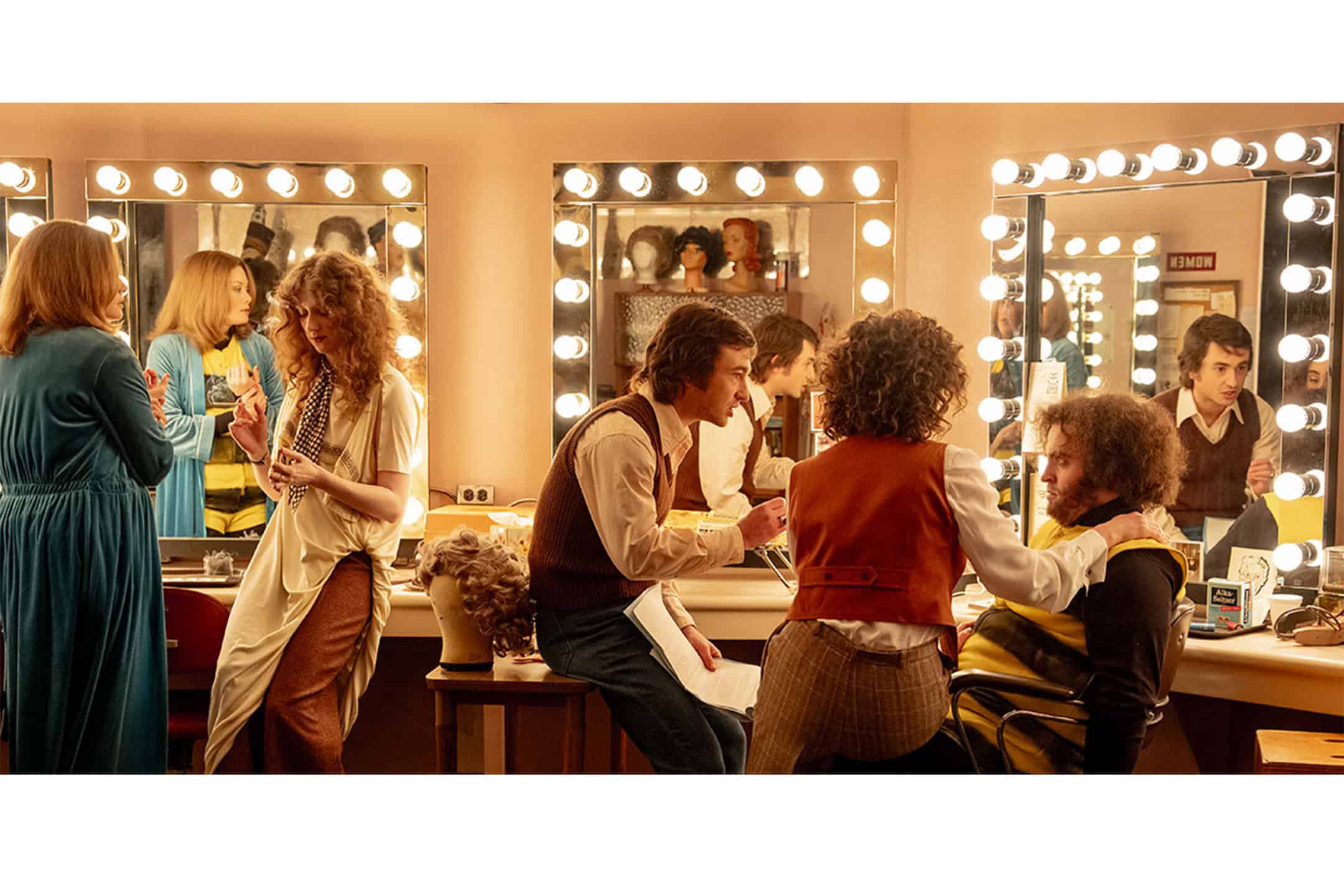While IMDb labels the film as a biographical comedy-drama, director Jason Reitman’s Saturday Night falls flat with its humour. The jokes, primarily repetitive and lame sexual innuendos, are poorly delivered by much of the cast. As a casual fan of Saturday Night Live (SNL) myself, I found its mediocre 49th season to be more amusing than this movie.
However, Reitman deserves credit for inducing anxiety and dramatic chaos in the audience, which earns the film its label as a biographical drama. Saturday Night starts at 10:00 pm on October 11, 1975 — 90 minutes before the first premiere of SNL. With the clock counting down to 11:30 pm, the pressure of getting everything and everyone ready for air falls on the new Canadian producer — and U of T alumnus — Lorne Michaels (Gabriel LaBelle).
As Jon Batiste’s heart-pounding score starts to play — filled with arrays of instruments and loud, relentless drums — Michaels’ stress becomes palpable as he frantically runs from one crisis to the other, trying to extinguish the pure chaos ensuing in Studio 8H. The chaos includes a stubborn John Belushi (Matt Wood), who refuses to sign a hiring contract and ends up in a physical altercation with the attractively vain Chevy Chase (Cory Michael Smith). Meanwhile, other crew members are either high from marijuana or rejecting family-friendly edits to the script. In a nutshell, the film embodies the meme of the dog calmly saying, “This is fine,” in the middle of a room on fire.
In the eyes of a then-NBC executive David Tebet (Willem Dafoe), the show is doomed to fail. However, knowing that SNL would go on to become one of the longest-running and most successful live shows, the suspense of whether it will succeed is undermined. Instead, the film plays out as a typical underdog story about a young unknown trying to make a name for himself. Though the plot is rushed to mirror the show’s time-sensitive nature, some context between the characters and their relationships with each other would have filled that void — like Belushi and Chase’s feud or the failing marriage of Michaels and his co-writer and wife, Rosie Shuster (Rachel Sennott).
From fast camera pans to low-angle shots of the old snobby white executives who are men, the film’s cinematography effectively captures the showrunner’s pressure to maintain control amid the mayhem. But that’s all that Saturday Night has to offer — unresolved chaos that leads to no substantial ending. Its captivating cinematography can’t save its exhausted story.
Batiste’s score underlines each of Michael’s challenges. However, the music frequently drowns out the characters’ dialogue which, whether intentional or not, proves to be an inconvenience.
What made Saturday Night intriguing to watch was the cast’s skillful imitations of their real-life counterparts, particularly Smith’s and LaBelle’s performances. Smith excelled in capturing Chase’s arrogance and humour, especially in his interaction with Wood’s Belushi. A notable touch was Smith’s ability to infuse a bit of humanity into Chase, making the character more likable than the real-life figure. Overall, the ensemble was impressive, with each actor bringing their own quirks and idiosyncrasies, which made the film’s less successful jokes more tolerable.
LaBelle’s distress was vividly conveyed through his eyes, effectively communicating Michael’s inner turmoil and stress. LaBelle’s expressive performance allowed the audience to easily relate to Michaels’ experience and often spoke volumes without the need for many words. His on screen chemistry with Sennott’s Shuster was lacking but accurate, as they would get divorced later on in real life.
Saturday Night has the potential to become a commercial success, but don’t expect much comedy, as the drama shines through in this film. If you find yourself laughing, you might have more in common with the 30- and 40-year-olds who were enjoying the supposedly “funny” scenes — and that is okay. Perhaps, Reitman should have focused more on getting the show ready before it hit 11:30 pm.



No comments to display.